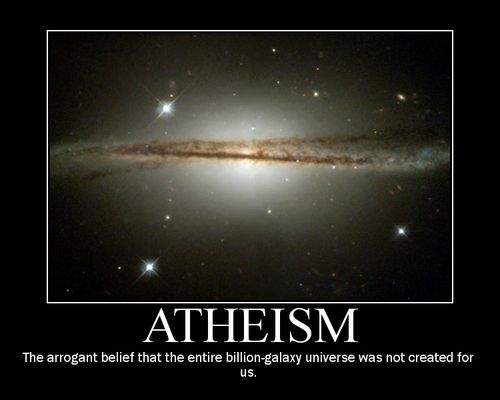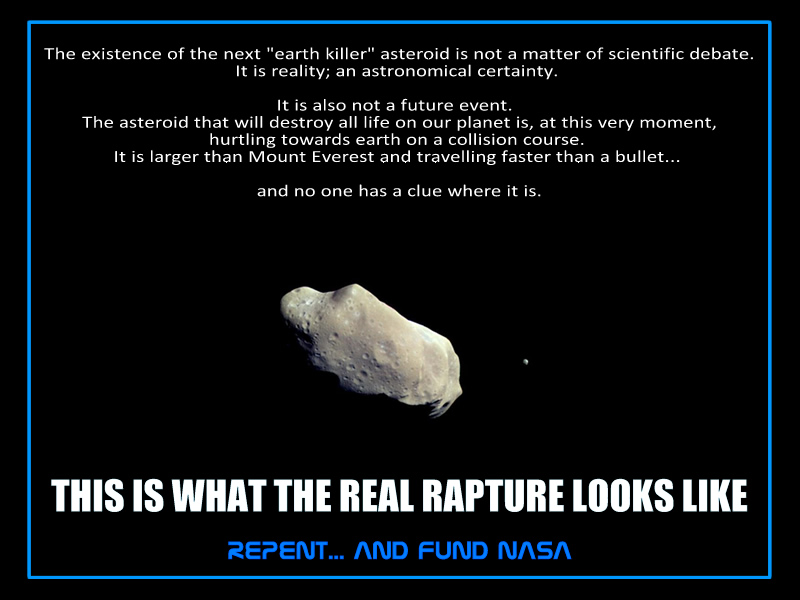-
Light travels so fast that it took us millions of years to discover
that it travels at all.
- Douglas Adams
In 1933, due to better telescope technology, Edwin Hubble made a huge
leap and dramatically expanded the heavens by concluding that
what had previously been called nebulas within our galaxy
were actually separate galaxies millions of light years away.
Using the Hubble telescope, we can now see so far, that for all we know,
we may be looking at a reflection of ourselves on a cosmic wall on the
the border of our universe in a multiverse system.


Hubble's deep and ultra deep field view video.
Imagine if you will that God, its creator likes the smell of goat
meat (according to the bible).
The notion that all of this was made for us alone is stupid, absurd,
and preposterous, but please feel free to believe in what you wish.
Every speck on this picture is a galaxy containing 50-500 billion
stars. Do you still think this was made just for our viewing
pleasure?







Messier 101 is also known as the Pinwheel Galaxy and 100-500 billion
stars. Imagine if you will that God, its creator likes the smell of
goat meat (according to the bible).
Around a typical star like our sun, there is a so-called
Goldilocks zone - not to hot, not too cold, but just right for
planets with liquid water. A thin band of orbits lies between those
that are too far from the star, where water freezes, and too
close where it boils.
Presumable, a life friendly orbit has to be nearly circular. A
fiercely elliptical orbit would only allow the planet ot whiz thru
the Goldilocks zone every few (Earth) decades or centuries.
The size of our moon and its rotation around the Earth helps to
stabilize the Earth's rotation around its own axis. The moon's
distance from the Earth is another factor that provides for
smaller tidal forces.
The massive gravitational vacuum cleaner of Jupiter is well placed to
intercept asteroids that would otherwise threaten us with a
lethal collision.
It has been estimated that there are between 1 billion and 30
billion planets in our galaxy and 100 billion galaxies in the
observable universe. Knocking off a few noughts for reasons of
ordinary prudence, a bilion billion is a conservative estimate
of available planets in our universe. Now, suppose the origin
of life, the spontaneous arising of something equivalent to DNA,
really was a quite staggering event. Suppose it was so improbable
as to occur on only one in a billion planets. And yet ... even
with such absurdly long odds, life will still have arisen on
a billion planets -- of which Earth of course is one.
|



 hjw2001@gmail.com
hjw2001@gmail.com



 hjw2001@gmail.com
hjw2001@gmail.com